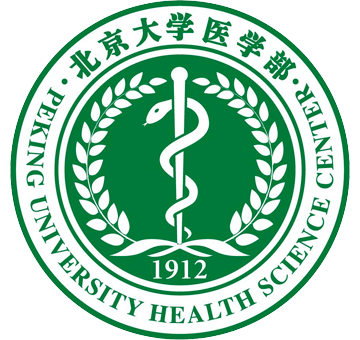Bridging Conference: Improving health through data science, computable knowledge and learning systems
Part of the Joint Institute Bridging Conference seminar series
How can artificial intelligence, machine learning, and computable biomedical knowledge be leveraged to improve health and health education systems? Join colleagues from Michigan Medicine and Peking University Health Science Center for an overview of relevant research at each institution and an exploration of potential data science collaborations.
Featuring:
Qimin Zhan, MD
Academician, Chinese Academy of Engineering
Peking University Boya Chair Professor, Deputy Director of the University Council
Dean of Peking University International Cancer Institute and National Institute of Health Data Science at Peking University
Director, Molecular Oncology Laboratory Beijing Cancer Hospital
Dean of the School of Medicine, Suzhou University
Former Executive Vice President of Peking University, former Director of Peking University Health Science Center
Qimin Zhan currently serves as Vice President of Chinese Medical Doctor Association, Vice Chairman of China Anti-Cancer Association, Vice President of China International Exchange and Promotive Association for Medical and Health Care, Vice Chair of Chinese Society of Microcirculation, and Chairman of the Overseas Physicians division of the Western Returned Scholars Association. He is the Director of the Strategic Council for Biotechnology Development, Ministry of Science and Technology of the People’s Republic of China, Deputy Director of Science and Technology Innovation Committee of National Health Commission, Convenor of the 8th Discipline Evaluation Group of the Academic Degrees Committee of The State Council, and Member of the Fifth Committee of National Science and Technology Awards.
He has been engaged in the research of molecular oncology and translational medicine for a long time. He made outstanding achievements in the field of molecular oncology, including the first demonstrations in tumor suppressor p53-regulated signaling pathways in the cell cycle checkpoints and genomic stability following genotoxic stress. He also made the first demonstration of genomic alterations in human esophageal squamous cell carcinoma (ESCC), defining significant mutated genes, copy number variations and structure veriations during the ESCC development. He has published more than 270 peer-reviewed papers and 13 books in international journals of medical biology, including Nature, Cell, Cell Research, JCI, EMBO, Hepatology, Molecular Cancer, JEV, STTT, Cancer Research, Oncogene, and PNAS. He has been invited as keynote speakers of national and international conferences for over 120 times and served as co-chairman of 15 international academic conferences.
Luxia Zhang, MD, PhD
Associate Dean, National Institute of Health Data Science at Peking University
Professor of Medicine
Renal Division, Peking University First Hospital
Peking University Institute of Nephrology
Dr. Luxia Zhang is the Associate Dean of the National Institute of Health Data Science at Peking University and the professor in the renal division of Peking University First Hospital . She obtained her M.D. degree at Peking University; and her MPH degree at Harvard School of Public Health.
Her research focusses on prevalence, risk factors, intervention, and management of kidney disease in China. Most of her work provides first-hand information on kidney disease in China and has gained wide attention internationally. During the last several years, her study interests have been expanded to the management of major non-communicable chronic diseases by leveraging the power of big data and machine learning. Her studies have been published in top medical journals including N Engl J Med, the Lancet and Br Med J. Dr. Zhang was the "Elsevier - Chinese Highly Cited Researcher 2020". She is the Vice president of Health Data Application and Management Committee, Chinese Hospital Association; Deputy Editor of Health Data Science (a Science Partner Journal); member of the Lancet Digital Health International Advisory Board; member of Editorial Board of Clin J Am Soc Nephrol and Am J Kidney Dis.
Hang Li, MD
Director and Professor of Dermatology
Vice President, Peking University First Hospital
Executive Deputy Director, National Clinical Research Center for Skin and Immune Diseases
Dr Hang Li got MD in dermatology from Peking University. He specializes in dermatologic surgery. He is vice director of Peking University First Hospital. He currently serves as the executive deputy director of the National Clinical Research Center for Skin and Immune Diseases and vice President of China Dermatologists Association
In recent years, Dr. Li has been engaged in dermatoses clinical big data and AI multimodal database construction. Under his leadership, his team established a clinical registration research network covering 339 tertiary hospitals in 31 provinces. He is identified as the constructor of the multimodal database for dermatology AI medical device evaluation by the Ministry of Industry and Information Technology of PRC and National Medical Products Administration.
Guilan Kong, PhD
Associate Research Professor
National Institute of Health Data Science
Peking University
Dr. Guilan Kong is an Associate Research Professor at National Institute of Health Data Science, Peking University, China. She received her PhD in Decision and System Sciences from the University of Manchester, UK, and M. Eng. and B. Eng. in Computer Science and Technology from the National University of Defense Technology, China. Dr Kong' s research focus on clinical decision support systems, medical data mining, multiple criteria medical quality evaluation, and learning health systems. She has been funded by National Natural Science Foundation of China, the Ministry of Education of China, Beijing Municipal Science and Technology Commission, Peking University, and the Michigan Medicine - Peking University Health Science Centre Joint Institute etc.
She is a Standing Committee member of the Application and Management of Big Data in Health Committee associated to Chinese Hospital Association, and a Standing Committee member of the data analysis branch of the Chinese Association Geriatric Research. She is an Associate Chair of the Smart Health and Senior Care Committee associated to China Association
of Gerontology and Geriatrics. She is a Chinese expert designated by the European project IDIH. She serves on the editorial board of Health Data Science.
Charles M. Friedman, PhD
Department Chair of Learning Health Sciences
Josiah Macy Jr. Professor of Medical Education
Dr. Charles “Chuck” Friedman is the Chair of the Department of Learning Health Sciences and the Josiah Macy Jr. Professor of Medical Education at the University of Michigan Medical School, as well as a professor of information and of public health. Dr. Friedman is focused on building a Learning Health System, a health system that can continuously study and improve itself, at the University of Michigan and in the state. Dr. Friedman first explored the concept of Learning Health Systems in 2010 through the Institute of Medicine while at the Office of the National Coordinator for Health IT (ONC).
Under Dr. Friedman's leadership, the department of Medical Education transformed into the Department of Learning Health Sciences, a "first in the nation" medical school academic department dedicated to the sciences of learning at all levels from learning by individuals, to learning by teams and organizations, and learning by ultra-large scale systems, such as entire nations.
At ONC, Dr. Friedman served as Deputy National Coordinator and Chief Scientific Officer. In addition to advancement of the Learning Health System, his work promoted several IT innovations including SMARTvHealth IT, an open, standards based technology platform. He was lead author of the nation's first health IT strategic plan. Prior to these executive positions at ONC, Friedman was associate vice chancellor for Biomedical Informatics and founding director of the Center for Biomedical Informatics at the University of Pittsburgh.
Dr. Friedman's research emphasizes large-scale information infrastructures and resources to improve health, how individuals and groups interact with information resources, and methods for studying the outcomes of these interactions.
Allen Flynn, PhD, PharmD
Assistant Professor of Learning Health Sciences
Assistant Professor of Information
Following his graduation in 1993 as a Doctor of Pharmacy from the University of Michigan, Allen Flynn studied Computer Science. After working as a network analyst during the dot-com bubble he returned to pharmacy practice as a hospital staff pharmacist in 2003. Allen was promoted to Coordinator and became involved with several major health IT projects. For the next 9 years Allen held roles of increasing responsibility while developing his expertise in electronic health records and medication system safety. He earned his PhD in the School of Information at the University of Michigan where he conducts research on infrastructure to support routine ongoing learning about human health. Allen is an Assistant Professor in the Department of Learning Health Sciences at the University of Michigan Medical School where his team is developing a new digital library for computable biomedical knowledge. Allen has authored several publications in the domain of health informatics.
Dr. Flynn's research and scholarly interests include health informatics, learning systems, interoperability, advice-giving systems, expert systems, medication-related knowledge representation, medication use information, medication advice, and medication-related decision-making. His subject-matter expertise are computerized provider order entry, electronic prescribing, medication-related clinical decision support, theories of advice, management of health IT.
Rachel Richesson, PhD, MPH, MS, FACMI
Professor of Learning Health Sciences
University of Michigan Medical School
Dr. Rachel Richesson is a Professor in the Department of Learning Health Sciences, University of Michigan Medical School. She holds a PhD and MS in Health Informatics and a Masters of Public Health from the University of Texas. She conducts original research on the quality and usability of data from electronic health records (EHRs) for research, and has fostered numerous interdisciplinary research collaborations. She has directed implementation of data standards for a number of multi-national multi-site clinical research and epidemiological studies, including the NIH Rare Diseases Clinical Research Network, Type 1 Diabetes TrialNet, and The Environmental Determinants of Diabetes in the Young (TEDDY) study, and the national distributed Patient Centered Outcomes Research Network (PCORnet).
Dr. Richesson currently leads the EHR Core for the NIH Health Systems Research Collaboratory, which is developing standards and quality metrics for clinical phenotyping using EHR data in pragmatic clinical trials. In addition, she and Department of Learning Health Science chair Charles Friedman co-lead the multi-stakeholder "Mobilizing Computable Biomedical Knowledge" (MCBK) community charged with establishing the standards, policies, and governance needed for biomedical knowledge to be widely disseminated and applied.
Dr. Richesson's research interests include biomedical informatics (including Clinical Research Informatics and Public Health Informatics), evaluating and implementing data standards (including terminologies and classifications such as SNOMED CT, ICD, LOINC, RxNorm, CTCAE and MedDRA, and condition-specific "common data elements'), knowledge representation (including formal ontologies, heterogeneous data integration), the design of patient registries, and rare diseases research advocacy. Dr. Richesson's expertise includes Data representation, data harmonization, data standardization, pragmatic research design, clinical decision support, and team science.
Akbar Waljee, MD, MSc
Professor of Learning Health Sciences, Internal Medicine
University of Michigan Medical School
Dr. Akbar Waljee, is a Professor in the Department of Learning Health Sciences, University of Michigan Medical School. He holds MD and BS from Emory University and MSc from University of Michigan.
Dr. Waljee's research focuses on tailoring treatment to the specifics of the individual (precision care) with gastrointestinal and liver diseases. He uses artificial intelligence methods such as machine learning and deep learning to better decision-making for tailored and individualized care to facilitate the delivery of efficient, effective and equitable care, especially in costly diseases and in limited resource settings.



